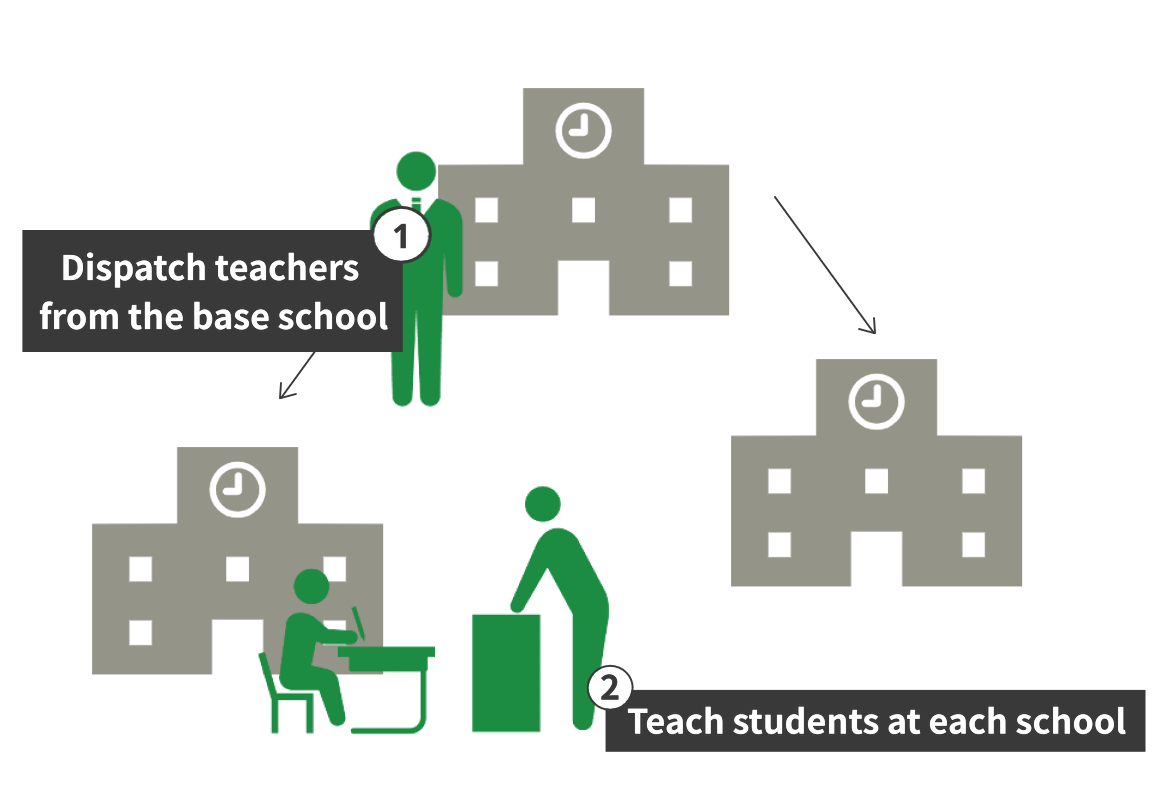There aren't any vocational schools for the students from my mother country to go so I have to go to Japanese school.
TodayWhat is the current situation today?
-
About half of the kids who need Japanese language guidance is living in scattered areas where only one to five international kids live.
(Quoted from
The Ministry of Education, Culture, Science, and Technology(MEXT)’s "About the result of Survey on acceptance status of children and students who need Japanese language instruction (2018)" (page11)
)
- Municipalities are not able to afford money and human resources so they often become inactive about the support (Quoted from Iki Tanaka “Solitude of international kids living in areas where foreigners are scattered” NPO Youth Support Center/YSC global school (IKI TANAKA),28.9.2015 )
- There are only small number of teachers who are involved with international kids, and those teachers tend to be isolated dealing with difficulties, so as a result the problems don't get revealed.
Solutionwhat kind of solutions do we have?
Enable international kids to get a support even there is no Japanese Language guidance teacher
"Set a base school and dispatch a supervisor from there" or "Students move instead of supervisors and teach them Japanese in short term"
However, in "base-school method", one teacher moves from school to school so there are problems such as high transportation expenses and short class period per one kid.
The latter allows international kids to meet children in same circumstances so they don't feel insulted, but it is hard for them to go due to lack of transportation system and their parents cannot pick up or drop off them because they don't have drivers license or they don't have time to do it.
If these two counter plans are not enough, ICT could be the solution. We can broadcast online lessons.
(Quoted from
Iki Tanaka "Children who do not understand Japanese," only one in this school "43% -Considering about what to do with Japanese language education for children in areas where foreigners are scattered." NPO Youth Support Center/YSCglobal school (IKI TANAKA), 3.2.2015
)


Enable the teachers who work in scattered areas share and talk about their experiences
One reason why the support in scattered areas isn't enough is because schools and teachers don't know how to deal with the problems.
In consequence, when an international kid come to one school, they will have trouble too because the information aren't shared.
It is unlikely for them to launch a study group.
The movements to gather up the school in scattered areas has began to be seen.
For example, "Iwate university center regional Japanese education support project-Japanese education supporting network meeting in Iwate",
people who are involved in the support of international students has gathered up to have an opportunity to talk about it and made an executive committee.
(Quoted from
Yumiko Utsumi・Yumi Yokozawa(2008) “About support in scattered areas where foreign children who need Japanese language instruction live. What we have seen from holding "Japanese Language Learning Support Network Conference 07 in YAMAGATA"(CORE)
)。
OpinionOur opinion
Back





I found a class where many international children gather to learn Japanese online, but it wasn't near my house so I couldn't go.